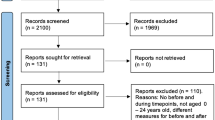Abstract
OBJECTIVES: Studies worldwide point to increased risk of mental health problems among immigrants. However, the data on Canadian immigrants’ mental health are ambiguous. To address this, we examined the relationship of both self-perceived mental health and reported diagnosis of mood disorders with age, gender, migration status, time since migration, and social determinants of health factors.
METHODS: We analyzed three cycles of the Canadian Health Measures Survey. Our outcome variables were self-perceived mental health and reported diagnosis of mood disorders. We used weighted logistic regression to model time since migration conditional on age, gender, income, community belonging, education, and employment status for 12 160 participants aged 15-79 years.
RESULTS: Recent (within 5 years) migrants reported better self-perceived mental health (odds ratio 3.98, 95% confidence interval [CI]: 2.06-7.70) but this effect disappeared with longer time since immigration. Other predictors were older age, higher income, better sense of community belonging, and being employed. Similarly, diagnosis of mood disorders was less likely to be reported in recent migrants (odds ratio 0.23, 95% CI: 0.10-0.53) with some weak evidence that this was also seen among longer-term migrant residents (>10 years). Diagnosis was also associated with older age, being a woman, lower income, weak sense of community belonging, and being unemployed.
DISCUSSION: Our findings indicate that migrants to Canada do not have worse mental health in general, though health and social policies need to attend to the socio-economic determinants, such as low income, unemployment, and a poor sense of community belonging, which contribute to population health outcomes.
Résumé
OBJECTIFS : Des études du monde entier font état d’un risque accru de troubles de santé mentale chez les immigrants. Les données sur la santé mentale des immigrants canadiens sont toutefois ambiguës. Pour y remédier, nous avons examiné les relations entre la santé mentale autoperçue et les déclarations de diagnostics de troubles de l’humeur, d’une part, et l’âge, le sexe, le statut migratoire, le temps écoulé depuis la migration et les déterminants sociaux de la santé d’autre part.
MÉTHODE : Nous avons analysé trois cycles de l’Enquête canadienne sur les mesures de la santé. Nos variables de résultats étaient la santé mentale autoperçue et les déclarations de diagnostics de troubles de l’humeur. Nous avons eu recours à la régression logistique pondérée pour modéliser le temps écoulé depuis la migration en tenant compte de l’âge, du sexe, du revenu, du sentiment d’appartenance à la collectivité, de l’instruction et de la situation d’emploi de 12 160 participants de 15 à 79 ans.
RÉSULTATS : Les migrants récents (depuis moins de 5 ans) ont fait état d’une meilleure santé mentale autoperçue (rapport de cotes 3,98, intervalle de confiance [IC] de 95 %: 2,06-7,70), mais cet effet disparaissait avec le temps écoulé depuis l’immigration. Les autres variables prédictives étaient l’âge plus avancé, le revenu plus élevé, un meilleur sentiment d’appartenance à la collectivité et le fait d’avoir un emploi. De même, le diagnostic de troubles de l’humeur était moins susceptible d’être déclaré par les migrants récents (rapport de cotes 0,23, IC de 95%: 0,10-0,53); quelques données probantes fragiles ont par ailleurs indiqué que ce diagnostic était présent chez les migrants résidents arrivés depuis plus longtemps (>10 ans). Le diagnostic était aussi associé à l’âge plus avancé, au sexe féminin, au revenu plus faible, au moindre sentiment d’appartenance à la collectivité et au chômage.
DISCUSSION : Nos constatations montrent que les migrants au Canada n’ont pas une moins bonne santé mentale en général, mais que les politiques sociosanitaires doivent s’attarder aux déterminants socioéconomiques comme le faible revenu, le chômage et la fragilité du sentiment d’appartenance à la collectivité, qui contribuent aux résultats de santé des populations.
Similar content being viewed by others
References
Statistics Canada. Immigration and Ethnocultural Diversity in Canada. Ottawa, ON: Statistics Canada, 2013. Available at: http://www12.statcan.gc.ca/nhs-enm/2011/as-sa/99-010-x/99-010-x2011001-eng.pdf (Accessed July 15, 2016).
Citizenship and Immigration Canada. Canada Facts and Figures: Immigrant Overview — Permanent Residents, 2014. Ottawa, ON: Citizenship and Immigration Canada, 2015.
Kennedy S, Kidd MP, McDonald JT, Biddle N. The healthy immigrant effect: Patterns and evidence from four countries. J Int Migr Integr 2015;16(2):317–32. doi: 10.1007/s12134-014-0340-x.
Abebe DS, Lien L, Hjelde, KH. What we know and don’t know about mental health problems among immigrants in Norway. J Immigr Minor Health 2014; 16(1):60–67. PMID: 23117694. doi: 10.1007/s10903-012-9745-9.
De Maio FG, Kemp E. The deterioration of health status among immigrants to Canada. Glob Public Health 2010;5(5):462–78. PMID: 19513909. doi: 10.1080/17441690902942480.
Clarke DE, Colantonio A, Rhodes AE, Escobar M. Pathways to suicidality across ethnic groups in Canadian adults: The possible role of social stress. Psychol Med 2008;38:419–31. PMID: 17976253. doi: 10.1017/S003329170700 2103.
Hollander A, Bruce D, Burström B, Ekblad S. Gender-related mental health differences between refugees and non-refugee immigrants: A cross-sectional register-based study. BMC Public Health 2011;11(180):1–8. PMID: 21435212. doi: 10.1186/1471-2458-11-180.
Kwak K, Rudmin F. Adolescent health and adaptation in Canada: Examination of gender and age aspects of the healthy immigrant effect. Int J Equity Health 2014;13(1):103. PMID: 25394371. doi: 10.1186/s12939-014-0103-5.
Pahwa P, Karunanayake P, McCrosky J, Thorpe L. Longitudinal trends in mental health among ethnic groups in Canada. Chronic Dis Inj Can 2012; 32(3):164–76. PMID: 22762903.
Piccinelli M, Wilkinson G. Gender differences in depression. Br J Psychiatry 2000;177(6):486–92. doi: 10.1192/bjp.177.6.486.
Rodriguez E, Frongillo EA, Chandra P. Do social programmes contribute to mental well-being? The long-term impact of unemployment on depression in the United States. Int J Epidemiol 2001;30:163–70. PMID: 11171879. doi: 10.1093/ije/30.1.163.
Chadwick KA, Collins, PA. Examining the relationship between social support availability, urban center size, and self-perceived mental health of recent immigrants to Canada: A mixed-methods analysis. Soc Sci Med 2015;128:220–30. PMID: 25621402. doi: 10.1016/j.socscimed.2015.01.036.
Puyat, JH. Is the influence of social support on mental health the same for immigrants and non-immigrants? J Immigr Minor Health 2013;15(3):598–605. PMID: 22711218. doi: 10.1007/s10903-012-9658-7.
Gee EM, Kobayashi KM, Prus, SG. Examining the healthy immigrant effect in mid- to later life: Findings from the Canadian Community Health Survey. Can J Aging 2004;23(Suppl 1):S61–69. PMID: 15660311.
Bourque FI, van der Ven E, Malla A. A meta-analysis of the risk for psychotic disorders among first- and second-generation immigrants. Psychol Med 2011; 41(5):897–910. PMID: 20663257. doi: 10.1017/S0033291710001406.
Ali J. Mental health of Canada’s immigrants. Health Rep 2002;13:101–7.
Menezes NM, Georgiades K, Boyle, MH. The influence of immigrant status and concentration on psychiatric disorder in Canada: A multi-level analysis. Psychol Med 2011;41(10):2221–31. PMID: 21349240. doi: 10.1017/S0033 291711000213.
Schaffer A, Cairney J, Cheung A, Veldhuizen S, Kurdyak P, Levitt A. Differences in prevalence and treatment of bipolar disorder among immigrants: results from an epidemiologic survey. Can J Psychiatry 2009; 54(11):734–42. PMID: 19961661. doi: 10.1177/070674370905401103.
Stafford M, Newbold BK, Ross, NA. Psychological distress among immigrants and visible minorities in Canada: A contextual analysis. Int J Soc Psychiatry 2011;57(4):428–41. PMID: 20378661. doi: 10.1177/0020764010365407.
Kisely S, Terashima M, Langille D. A population-based analysis of the health experience of African Nova Scotians. Can Med Assoc J 2008;179:653–58. PMID: 18809896. doi: 10.1503/cmaj.071279.
Tousignant M, Habimana E, Biron C, Malo C, Sidoli-Leblanc E, Bendris N. The Quebec adolescent refugee project: Psychopathology and family variables in a sample from 35 nations. J Am Acad Child Adolesc Pschyciatry 1999; 38(11):1426–32. PMID: 10560230. doi: 10.1097/00004583-199911000-00018.
Mechakra-Tahiri S, Zunzunequi MV, Seguin L. Self-rated health and postnatal depressive symptoms among immigrant mothers in Quebec. Women Health 2007;45(4):1–17. PMID: 18032165. doi: 10.1300/J013v45n04_01.
Box GEP, Tidwell, PW. Transformation of the independent variables. Technometrics 1962;4:531–50. doi: 10.1080/00401706.1962.10490038.
Islam F. Examining the “healthy immigrant effect” for mental health in Canada. Univ Toronto Med J 2013;90(4):169–75.
Ng E, Omariba, WR. Is there a healthy immigrant effect in mental health? Evidences from population-based health surveys in Canada. In: Canadian Issues Summer 2010: Immigrant Mental Health. Montreal, QC: Association for Canadian Studies, 2010; 23–28.
Vang Z, Sigouin J, Flenon A, Gagnon A. The healthy immigrant effect in Canada: A systematic review. Population Change and Life Course Strategic Knowledge Cluster Discussion Paper Series 2015;3(1). Available at: http://ir.lib.uwo.ca/pclc/vol3/iss1/4 (Accessed October 10, 2016).
Mental Health Commission of Canada. Making the Case for Investing in Mental Health in Canada. Ottawa, ON: Mental Health Commission of Canada, 2013. Available at: http://www.mentalhealthcommission.ca/English/system/files/private/document/Investing_in_Mental_Health_FINAL_Version_ENG.pdf (Accessed July 11, 2016).
Robert AM, Gilkinson T. Mental Health and Well-Being ofRecent Immigrants in Canada: Evidence from the Longitudinal Survey of Immigrants to Canada (LSIC). Ottawa, ON: Research and Evaluation Branch, Citizenship and Immigration Canada, 2012. Available at: http://www.cic.gc.ca/english/resources/research/mental-health.asp (Accessed October 12, 2016).
Delara M. Social determinants of immigrant women’s mental health. Adv PublicHealth 2016;2016:1–11. doi: 10.1155/2016/9730162.
Author information
Authors and Affiliations
Corresponding author
Additional information
Acknowledgements: Funding for this project was provided by PolicyWise for Children and Families. This research has been facilitated by the Women and Children’s Health Research Institute through the generous support of the Stollery Children’s Hospital Foundation. It was stimulated by funding from a World University Network RDF grant and is part of the Health Outcomes of Migration Events (HOME) programme of research (http://www.wun.ac.uk/wun/research/view/home-healthoutcomes-of-migration-events). Through access to the Statistics Canada Data Centre, the research was supported by funds to the Canadian Research Data Centre Network from the Social Sciences and Humanities Research Council, the Canadian Institutes of Health Research, the Canadian Foundation for Innovation, and Statistics Canada. Although the research and analysis are based on data from Statistics Canada, the opinions expressed do not represent the views of Statistics Canada or the Canadian Research Data Centre Network.
Conflict of Interest: None to declare.
Rights and permissions
About this article
Cite this article
Salami, B., Yaskina, M., Hegadoren, K. et al. Migration and social determinants of mental health: Results from the Canadian Health Measures Survey. Can J Public Health 108, 362–367 (2017). https://doi.org/10.17269/CJPH.108.6105
Received:
Accepted:
Published:
Issue Date:
DOI: https://doi.org/10.17269/CJPH.108.6105




